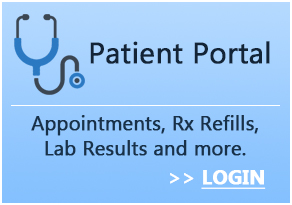
Polycystic Ovary Syndrome (PCOS) can feel like a mystery, and managing symptoms day-to-day often feels like a full-time job. But here’s the truth: PCOS management doesn’t have to mean super restrictive diets, endless supplements, or navigating it all on your own.
At Empire OBGYN, we’re committed to helping women in Buffalo and beyond find sustainable, empowering ways to manage PCOS naturally. Whether you’re newly diagnosed or looking to take control of persistent symptoms, this guide offers lifestyle tips that actually work becuase they’re rooted in your biology, your lifestyle, and your goals.
What Is PCOS and How Does It Affect the Body?
PCOS is a hormone-related condition that impacts how the ovaries function. It’s often associated with irregular periods, excess hair growth, acne, weight gain, and infertility. Internally, PCOS is connected to high androgen levels, insulin resistance, and low-grade inflammation.
These hormonal imbalances affect everything from your metabolism to your skin and your mood, making PCOS management feel complex. But understanding how PCOS works is the first step to reclaiming control.
Not sure if your symptoms could be PCOS-related? Talk to an OBGYN about your symptoms. We’re here to listen and help you find answers.
Why Lifestyle Changes Matter for PCOS Management
There’s no one-size-fits-all solution for PCOS and medications don’t always address the root causes. That’s why lifestyle changes play a central role in long-term PCOS management, especially if you’re focused on managing PCOS naturally.
Research continues to show that diet, movement, stress management, and sleep all influence hormone production and metabolic health. For many women, these daily habits are just as important as any prescription.
Nutrition Strategies That Make a Difference
A strategic PCOS diet is one of the most powerful tools in your PCOS management toolkit. With the right approach, food can help regulate insulin, reduce inflammation, and improve hormone balance for women of any age.
1. Stick to Low-Glycemic Foods
Low-glycemic foods help prevent the blood sugar spikes that can worsen insulin resistance, which is one of the most common drivers of PCOS symptoms. These include fiber-rich vegetables, whole grains like quinoa or oats, legumes, and fruits like berries or apples. Choosing these regularly supports steadier energy (and mood) throughout the day.
2. Add Lean Proteins and Healthy Fats
Protein helps balance blood sugar, keep you full longer, and support lean muscle — an important key for PCOS and weight management. Include options like eggs, tofu, chicken, Greek yogurt, and legumes. Pair these with healthy fats like avocado, chia seeds, olive oil, and nuts to support hormone production and reduce inflammation.
3. Reduce Added Sugars and Refined Carbs
Highly processed foods and refined sugars can disrupt insulin and cortisol, making PCOS symptoms harder to manage. Cut back on white bread, pastries, sugary cereals, soda, and packaged snacks. Instead, try whole-food swaps like sprouted bread, roasted sweet potatoes, or air-popped popcorn with olive oil.
4. Eat Balanced Meals Regularly
Skipping meals or going too long without eating can trigger energy crashes and cravings, especially if you’re insulin resistant. Aim for three meals a day with balanced macronutrients like protein, fat, and complex carbs with optional snacks if needed.
5. Stay Hydrated
While often overlooked, hydration plays a quiet but powerful role in holistic PCOS treatment. Drinking enough water supports digestion, reduces cravings, and helps with bloating and fatigue. Try adding lemon, mint, or cucumber to your water if plain water feels boring.
6. Consider Anti-Inflammatory Additions
Spices like turmeric, cinnamon, and ginger can help reduce inflammation and support metabolic function. Including these in meals (or teas) is a flavorful way to support your body from the inside out.
If you need more personalized support, start a customized plan with our team that is designed for your body and your lifestyle. Call Empire OBGYN today!
Exercise Approaches That Fit Into Busy Lives
Exercise is a key component of PCOS management, but it doesn’t have to be extreme. In fact, overdoing it can elevate stress hormones like cortisol, which may work against your goals.
Try These PCOS-Friendly Movement Strategies:
- Strength Training (2-3x per week): Helps improve insulin sensitivity and supports muscle tone.
- Walking or Low-Impact Cardio: Gentle, consistent movement reduces inflammation and supports hormone balance.
- Yoga or Pilates: These activities calm the nervous system and promote mind-body awareness. Both are essential for managing PCOS naturally.
- Be Realistic and Flexible: You don’t need to work out every day. The goal is consistency, not perfection.
Stress Management Techniques Proven to Impact Hormones
Stress isn’t just a mental state. It impacts your entire endocrine system. High cortisol can worsen insulin resistance and disrupt menstrual cycles, making stress management a non-negotiable part of PCOS management.
1. Breathwork and Meditation
Practices like deep belly breathing, mindfulness meditation, or guided visualizations can calm your nervous system in minutes. Apps like Headspace, Insight Timer, or Calm make it easy to start even with just 5-10 minutes a day. These moments of stillness can help your body shift from “fight or flight” mode to “rest and repair.”
2. Journaling for Clarity and Release
Getting your thoughts out of your head and onto paper can reduce overwhelm and help identify emotional triggers. Try jotting down what you’re grateful for, what stresses you out, or what you want to focus on tomorrow. Over time, this simple practice supports mental clarity and emotional resilience — a major key for managing PCOS naturally.
3. Digital Detox and Sleep Hygiene
Blue light exposure from phones and screens late at night disrupts melatonin production, which can mess with your sleep and hormones. Try unplugging at least 30-60 minutes before bed and creating a calming nighttime routine. Think dim lights, herbal tea, magnesium supplements, and no scrolling. Quality sleep is critical to lowering cortisol and regulating your cycle.
4. Movement as a Mood Booster
Exercise doesn’t just help with PCOS and weight management, it also boosts feel-good endorphins. Even gentle activity like walking, stretching, or dancing in your living room can help regulate your mood and reduce cortisol levels.
5. Boundaries and Saying “No”
Chronic stress often stems from overcommitting. Learning to say no, whether at work, socially, or even within your own household can be liberating. Protecting your energy is not selfish; it’s a crucial part of a holistic PCOS treatment plan.
Are you thinking that stress may be impacting your symptoms? At Empire OBGYN, we’ll help you find calming strategies that actually fit into your daily life.
Tracking Symptoms and Hormones Over Time
Every PCOS journey is different. One woman might experience something different from another. That’s why tracking your cycle, symptoms, and lifestyle habits can help you recognize patterns. This will also help you see what’s working effectively and what’s not.
What You Might Track:
- Menstrual cycle length and flow
- Ovulation signs (cervical mucus, basal temperature)
- Energy, sleep, mood, and cravings
- Weight, body changes, or skin fluctuations
- Food intake and workouts
Tracking supports a holistic PCOS treatment plan and allows your provider to make informed adjustments as needed.
How Empire OBGYN Supports Women with PCOS
At Empire OBGYN, we don’t just treat PCOS, we treat you. Our approach to PCOS management is rooted in whole-body wellness, compassionate care, and long-term success. We work with women across Buffalo to create plans that are realistic, respectful of your lifestyle, and built around your goals.
We understand that managing PCOS naturally looks different for each of our patients. Whether you’re seeking better cycles, improved skin, or enhanced energy, Empire OBGYN is here to help.
FAQs About PCOS Management
Can PCOS go away with lifestyle changes?
While there’s no “cure,” many women see significant improvement in symptoms, including regular periods, improved fertility, and better energy with sustained lifestyle changes.
What’s the best diet for PCOS?
There’s no one diet that works for all, but many benefit from a low-glycemic, anti-inflammatory diet rich in whole foods. Our team at Empire OBGYN can help you develop PCOS diet tips tailored to your needs.
Does weight loss help with PCOS?
Even modest weight loss (5-10% of body weight) can improve insulin sensitivity and hormonal balance. But remember — the goal is better health, not deprivation or perfection.
Can I manage PCOS without medication?
Absolutely. Many women use holistic PCOS treatment strategies like diet, movement, and stress management with great success.
Should I track ovulation if I have irregular periods?
Yes. Tracking can help identify patterns, even with irregular cycles. Our team offers tools and support to help you get started.
Ready to Take Control of Your PCOS?
Your body is not broken and you don’t have to go through this alone. With the right guidance and a customized approach, PCOS management becomes a journey toward strength, energy, and empowerment.
If you’re ready to start managing PCOS naturally with a plan that fits your life, the team at Empire OBGYN is here to support you every step of the way. Call us at (716) 877-1221 or visit www.empireobgyn.com to schedule your consultation and take the next step toward balance, clarity, and real relief.





